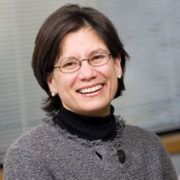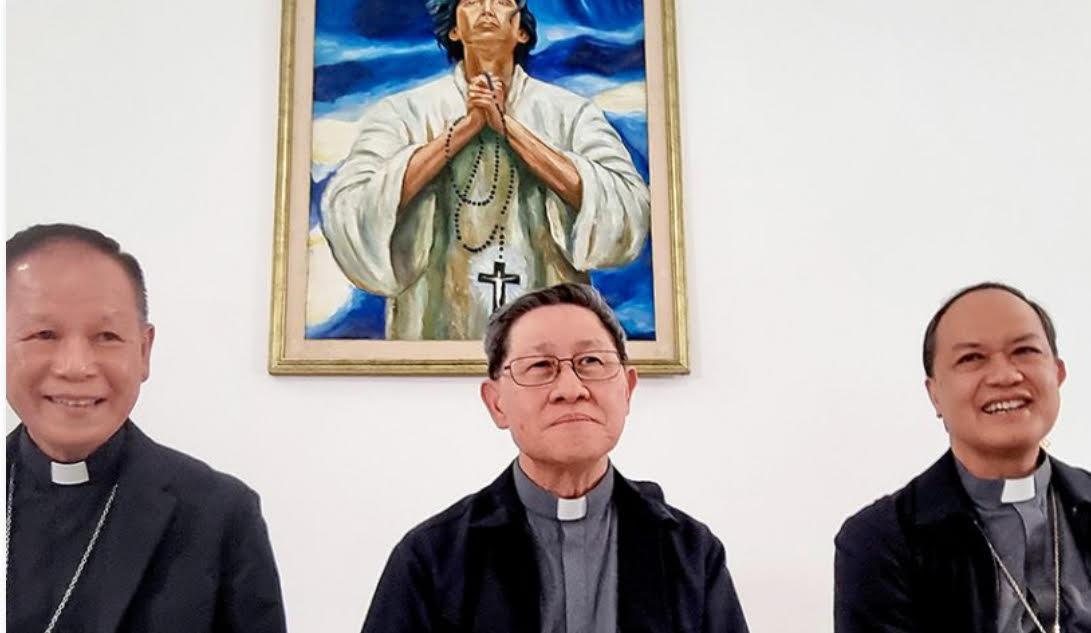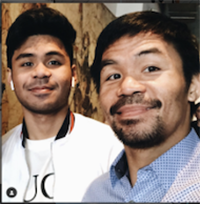ON MARCH 4, 2013, CNN reported the incredible news that a baby was cured of HIV, as announced at the 2013 Conference on Retroviruses and Opportunistic Infections in Atlanta. The baby girl from Mississippi is the first child to be “functionally cured” of HIV. Filipinos the world over will be proud to know that a Filipino-American, Dr. Katherine Luzuriaga, is part of the team responsible for the amazing medical breakthrough.
“This is the very first case in which we’ve conclusively been able to document that the baby was infected and then after a period of treatment has been able to go off treatment without viral rebound,” Dr. Katherine Luzuriaga told CNN.
Great achievement
A pediatric allergist, immunologist and professor from the University of Massachusetts, Luzuriaga revealed that the unidentified girl was born HIV-positive to a mother who received no pre-natal care and was not diagnosed as HIV-positive herself until just before delivery.
The baby was immediately given treatment after birth. Two years later, the toddler was found to have no virus in her blood, even after her mother stopped giving her treatment for 8 to 10 months.
The finding may help pave the way to eliminating HIV infection in children. Luzuriaga headed a team of laboratory investigators on the discovery. Johns Hopkins Children’s Center virologist Deborah Persaud, MD, was lead author on the report, and pediatric HIV specialist Hannah Gay, MD, associate professor of pediatrics at the University of Mississippi Medical Center, provided treatment for the baby.
For the astounding work of effectively curing a child with HIV/AIDS, Luzuriaga (along with Drs. Gay and Persaud) was named one of TIME Magazine’s 2013 list of the 100 Most Influential People in the world.
The full list and related tributes appeared on the April 29 issue of TIME, which became available on newsstands and tablets since April 19, and at time.com/time100.
Meanwhile, Philippine President Benigno ‘Noynoy’ Aquino III also made it to this prestigious list. They were among the distinguished personalities who were honored during the awards ceremony at the Time Warner Center on April 23.
“We consider this a great achievement,” Luzuriaga, speaking for her team, told The FilAm, an online magazine. “We’re very honored and actually very humbled to be among the ranks of these individuals that have been chosen.”
Most influential
Now on its 10th year, TIME’s annual list recognizes the activism, innovation and achievement of the world’s most influential individuals. As TIME managing editor Richard Stengel has said of the list in the past, “The TIME 100 is not a list of the most powerful people in the world, it’s not a list of the smartest people in the world, it’s a list of the most influential people in the world. They’re scientists, they’re thinkers, they’re philosophers, they’re leaders, they’re icons, they’re artists, they’re visionaries. People who are using their ideas, their visions, their actions to transform the world and have an effect on a multitude of people.”
Education and career
The director of the University of Massachusets Center for Clinical and Translational Science, Luzuriaga has been at the forefront of pediatric HIV/AIDS research for over 20 years.
In the medical world, she has been recognized for her work on early therapy of HIV-1 infected infants, and her collaborative research on the transmission of HIV from pregnant women to their newborns during birth, a leading cause of the rapid spread of HIV in developing countries.
Dr. Luzuriaga received her Bachelor of Science and Masters of Science degrees from the Massachusetts Institute of Technology (MIT) and her medical degree from the Tufts University School of Medicine.
A board-certified physician in General Pediatrics and Pediatric Infectious Diseases, Luzuriaga completed her internship and residency in pediatrics at the Boston Floating Hospital for Infants and Children of Tufts-New England Medical Center and her post-graduate training with a research fellowship in Infectious Disease at the University of Massachusetts Medical Center,
Dr. Luzuriaga joined the University of Massachusetts Medical Center (UMMS) faculty in 1990, and is currently Professor of Pediatrics and Molecular Medicine and Chief of the Division of Pediatric Immunology, Infectious Diseases, and Rheumatology.
She has held several leadership positions within the National Institutes of Health-sponsored Pediatric AIDS Clinical Trials Group and is a member of the Ghent Group on HIV in Women and Children.
She has served as a consultant to the World Health Organization on the Guidelines for the Diagnosis of HIV Infection in Children, as a member of the Institute of Medicine’s Committee on the Perinatal Transmission of HIV, and as a member of the NIH Office of AIDS Research Etiology and Pathogenesis Planning Committee.
She is also serving on the Pediatric AIDS Foundation’s Children’s Research Fund Advisory Committee and is a member of the Pediatric Infectious Disease Society and the American Association of Immunologists.
“Research in my laboratory is focused on the viral and immunopathogenesis of persistent viral infections in humans, including human immunodeficiency virus (HIV), Epstein Barr virus (EBV), and cytomegalovirus (CMV). Ongoing studies are focused on: 1) examining the relationship between viral replication/viral gene expression and the development of the antiviral CD4+ and CD8+ T cell repertoires from acute through chronic infection; 2) characterization of the ontogeny of cell-mediated immune responses to viral infections in infants and children; and 3) the development of prophylactic and therapeutic vaccine strategies for HIV,” explained Dr. Luzuriaga.
Awards and accolades
The complete HIV-AIDS Online Resource, thebody.com, reports that Luzuriaga has received numerous awards, including the Research Scholar Award from the Pediatric AIDS Foundation and Elizabeth Glaser Scientist Award from the Elizabeth Glaser Pediatric AIDS Foundation. She has also been recognized for her research on the transmission of the human immunodeficiency virus (HIV) from pregnant women to their newborns and for her work on early therapy of HIV-1 infected infants.
Her research has been supported over the years by RO1 and P01 funding from the National Institutes of Health.
She is the recipient of an NIH Mid-Career Award (K24), which provides support for her to mentor junior scientists in patient-oriented research. She has been invited to give lectures all across America and has authored and co-authored many articles, editorials, and book chapters.
Among her numerous appointments at the University of Massachusetts Medical School: Chief of the Division of Immunology, Infectious Diseases and Rheumatology in the Department of Pediatrics, and Chair of the Child Neurology Division Chief Search Committee.
Honored, humbled and committed
“We are honored and humbled that our work has been considered influential,” said Luzuriaga, as reported in the UMASS website.
“Our hope is that this will help to communicate the power and potential of scientific investigation for optimizing health outcomes for children. This work has benefited from the strong scientific community here at UMass Medical School, as well as the work of numerous colleagues around the world. Together, we are committed to eradicating pediatric HIV infection and improving child health globally.”
One of the passions of Luzuriaga is to invest in the next generation of scientists and doctors.
She is highly committed to training the next generation of scientists and serves on several review panels that provide awards to junior scientists, including the Elizabeth Glaser Scientist Selection Committee of the Elizabeth Pediatric AIDS Foundation, the March of Dimes, the Charles H. Hood Foundation Research Grant Advisory Committee, and the Fellowship Committee of the Pediatric Infectious Disease Society.






